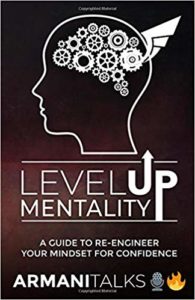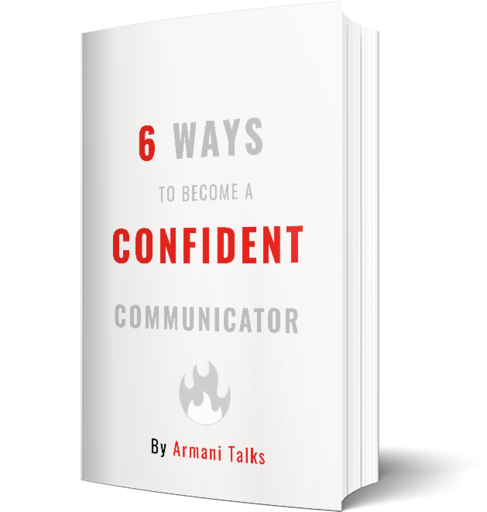How to Write Good Short Stories
Attention spans are plummeting.
And it seems to be getting lower day by day.
Is it time to throw in the towel?
Hell no!
It’s time to capitalize.
The power of short stories is an art form.
And unfortunately, it’s an art form that is not as respected as it should be.
In content creation, more is not always more.
Less can be more.
With creativity, rules warp.
And what normally wouldn’t make sense, makes a ton of sense.
That’s where short stories come in.
Learning how to write good short stories requires practice, no way around that.
And before understanding this craft, let’s take a flashback.
The Origins of Storytelling
No one can pinpoint the exact date or time period storytelling began.
However, there are clues.
2 clues come down to:
-Cave art.
-Oral storytelling.
Cave art was visual imagery telling tales.
The ancient drawings were made possible due to the discovery of fire.
When fire was discovered, it allowed our ancient ancestors to no longer fall asleep when the sun went down.
They were able to experiment with different routines.
Fire melted items which allowed them to draw in the first place.
Cave art was not a purposeless act.
It was full of purpose.
The purpose of cave art was to share information with others and to exercise imagination.
The next form of storytelling that came was oral storytelling.
This was before writing was a thing.
Information would be passed through word of mouth.
Visual and oral storytelling have a commonality.
Can you spot what that is?
‘What?’
Short.
Why Short Stories are Fundamental to Storytelling
Don’t let movies fool you.
Movies are an emergent property.
Due to the complexity of information technology and communication systems, longer tales have been possible.
And since plenty of storytellers do not know the history of the craft…
They confuse the new era as the only era.
Short stories are the most fundamental.
If you can master the short tale, then it becomes easier to tell longer stories.
The reason you want to know this is because it’s important to see the VALUE of short stories.
Otherwise, the act will require too much willpower.
What are some valuable traits of short storytellers?
Here are a few:
-Powerful idea.
-Simplified speech.
-Ability to influence those with short attention spans.
Don’t be intimidated.
You can do a ton with 1000 words.
“1000 words” is known as a short-short story.
Traditional short stories are around 2500-5000 words.
If you have a Twitter, you can write short-short-short stories.
280 characters.
Don’t limit yourself.
In this field, you think big by learning to think small.
How to Write Good Short Stories
Start light and work your way up.
You want to see where you currently stand with storytelling.
If I told you to share a story with me and make it short…
What would be your definition of short?
I used to know this lady at Toastmasters who was extremely long-winded.
Her name was Claudia.
If I told her to speak a story into existence, it would be at least 20 minutes.
That’s a minimum.
Your goal is to write your story.
Can you do it on a page?
‘I think so.’
Well, know so.
Try it out for yourself.
Tell a tale of one of the toughest moments of your life & how you bounced back from it.
No word length.
Just keep writing until you feel like you got your point across.
This will give a baseline idea of your storytelling flow.
Where did you end up?
Learning the Art of Compressing
A great writer knows that there are 2 stages of writing:
-Creating.
-Editing.
A mediocre writer confuses the 2 stages.
In the last section, you wrote a story about a rock bottom moment and about how you bounced back.
How many words was it?
‘3900.’
Okay, that’s not bad at all.
Do you feel like you got your point across?
‘Yes. But I spelled some words wrong. And I think I talked too much.’
That’s a good problem.
It’s better to have a lot of writing at first, so you can chop away the excess…
Rather than have little writing at first, and now you are scratching your head on what to say next.
Learning how to write good stories is not just about adding in ideas.
It’s about building the comfort to strip words away.
From the essay you wrote in the last section, read it now.
And then start editing.
Take away concepts that don’t move the point forward.
This needs to be said, one more time:
Take away concepts that do NOT move the point forward.
Great short storytellers are born in this stage.
The process of editing.
Why Practice Makes Perfect
In the creation stage, you are mainly writing.
In the editing stage, you are mainly reading with a bit of writing.
This iterative process of writing, reading your writing back and chopping of excess words is how you get a FEEL for storytelling.
And this requires reps.
No cheat coding through the process, my friend.
The last thing you want to do is even think about cheating at this point.
In the beginning stages, writing is going to mainly be a head activity.
You probably have to think a ton.
But if you put in your reps and don’t cheat, then you develop a feel.
It will soon feel like the greatest stories are being discovered rather than created.
Stephen King often says he doesn’t write stories.
He just discovers them.
That’s where the thrill is.
A seasoned short storyteller doesn’t get fancy with it.
Keep writing, keep reading, keep refining.
3 basic truths.
Starting your Writing Journey
There are tons of ways to start your writing journey.
It can be through a blog.
Through a journal.
Through a personal email list.
In my journey, I enjoy writing in public.
Sure, I do private writing as well in journaling.
But public writing with books, tweets, blogs, emails is where the fun is.
Not only do I get to practice writing.
I get to practice teaching and getting instant feedback on certain ideas.
But what works for me may not work for you.
And the only way to discover your personal formula is to get out there and start writing.
Learning how to write good short stories is all about writing short stories.
Not rocket science.
But many newbie writers will treat it like rocket science.
Leading to analysis paralysis.
But a fraction of the people reading this post will begin asap.
That’s how great short storytellers are born.
Less pondering.
And more doing.
Check out this Free Online Writing Course to get started.
– ArmaniTalks 





